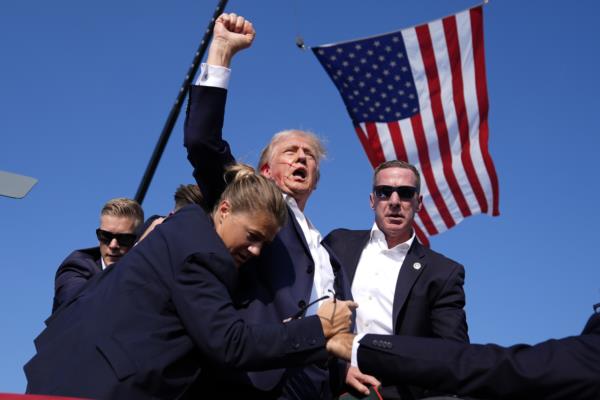
Months before an armed man targeted Donald Trump at a presidential campaign rally in rural Pennsylvania, state lawmakers had proposed outlawing the type of rifle used in the assassination attempt. However, the legislation stalled without coming to a vote, reflecting the longstanding political divide in Pennsylvania on gun policy.
Despite the shooting at Trump's rally, which resulted in a fatality and injuries, the state's gun laws are unlikely to see significant changes. Pennsylvania has been at a standstill for years, lacking the necessary support to either strengthen or relax existing firearm laws.
Legislatures in over half the states have passed new gun laws this year, with Democratic-led states enacting more restrictions and Republican-led states generally fortifying gun rights. Pennsylvania, however, has struggled to find bipartisan agreement on gun legislation.



In response to past incidents, Pennsylvania has taken some steps, such as requiring individuals convicted of domestic violence to surrender their guns promptly and creating a grant program for security improvements at potential targets of hate crimes.
Recent efforts to pass gun-control measures in Pennsylvania have faced challenges, with bills expanding background checks, allowing judges to order gun removal in certain cases, and banning 'ghost guns' stalling in the state Senate.
Despite some progress, bipartisan agreement remains elusive in Pennsylvania. Efforts to outlaw certain semiautomatic firearms, ban trigger devices causing rapid firing, and mandate reporting of lost or stolen weapons have faced obstacles.
The debate over assault weapons bans has intensified, with calls for stricter laws following the shooting at Trump's rally. However, the political landscape makes passing such bans challenging, as the AR-15 has become a symbol of freedom for many gun-rights supporters.
While research on the effectiveness of state assault weapon bans is inconclusive, studies show that safe gun-storage laws and higher minimum age requirements for gun purchases can reduce firearm injuries and deaths. High-profile incidents like the assassination attempt against Trump often prompt discussions on gun policies and mass shootings, offering opportunities to reassess state and federal gun laws.







